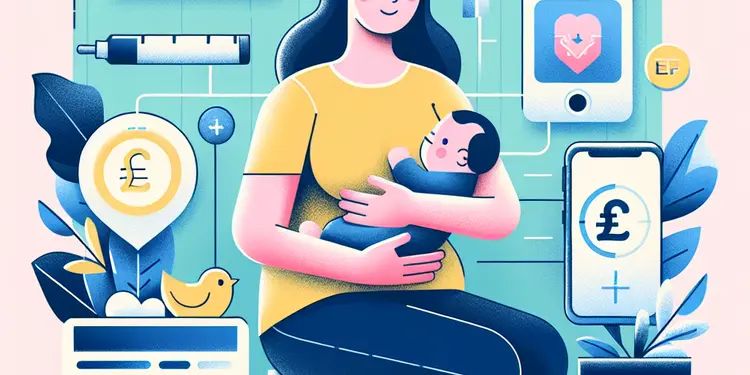
Find Help
More Items From Ergsy search
-
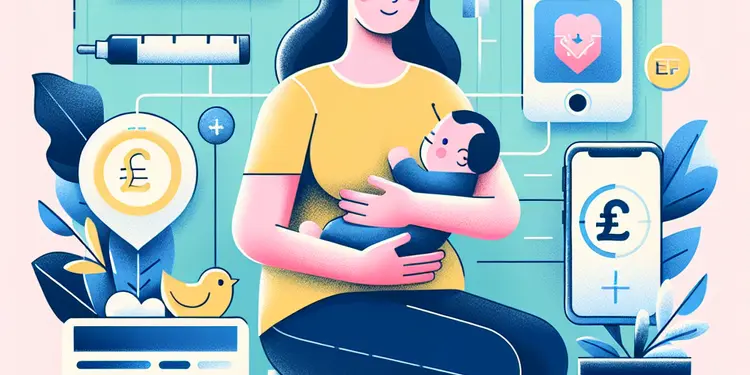
How is postnatal depression different from the 'baby blues'?
Relevance: 100%
-

Postnatal Depression
Relevance: 77%
-
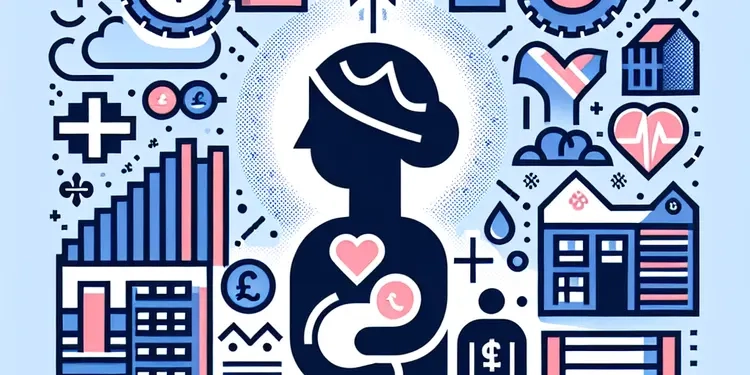
What is postnatal depression?
Relevance: 74%
-
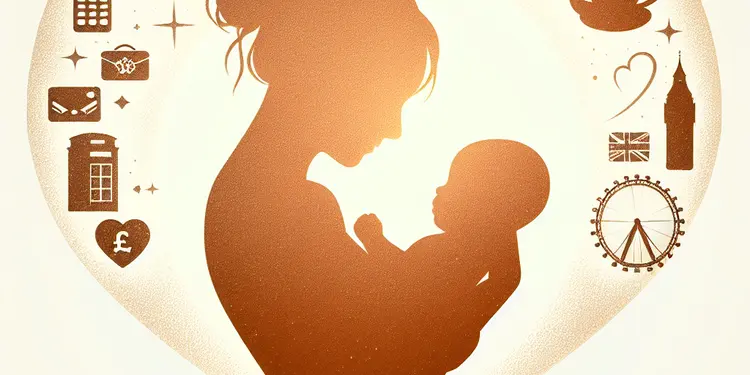
How does postnatal depression affect bonding with the baby?
Relevance: 72%
-
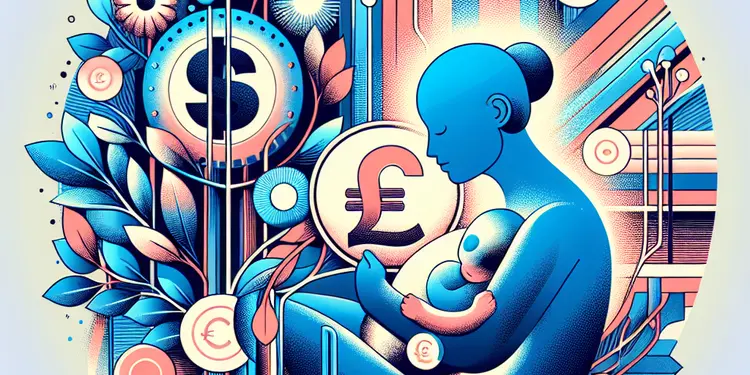
What are the symptoms of postnatal depression?
Relevance: 71%
-

Is postnatal depression a long-term condition?
Relevance: 70%
-

Postnatal Depression - Leanne's Story
Relevance: 68%
-
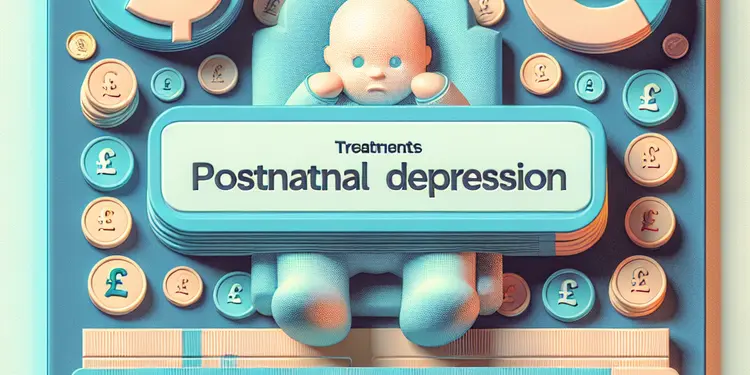
Are there treatments available for postnatal depression?
Relevance: 64%
-
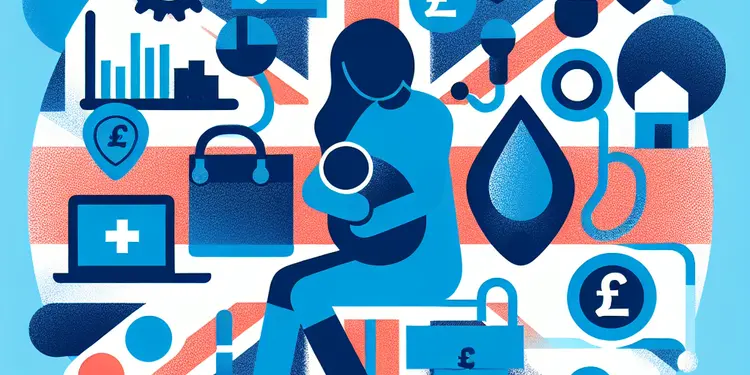
How is postnatal depression diagnosed?
Relevance: 64%
-
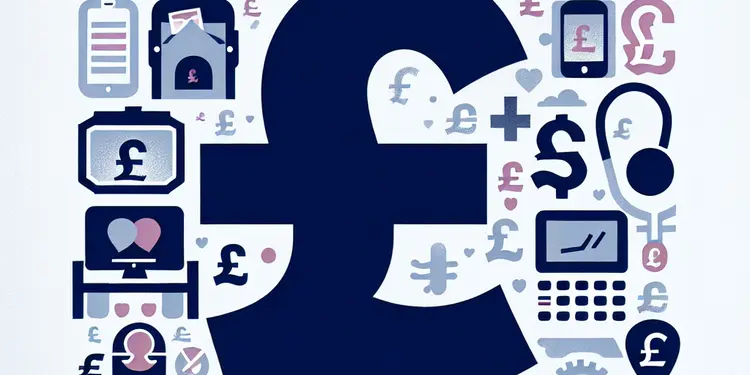
What should I do if I suspect I have postnatal depression?
Relevance: 63%
-

How do I know if I have postnatal depression? | NHS
Relevance: 59%
-
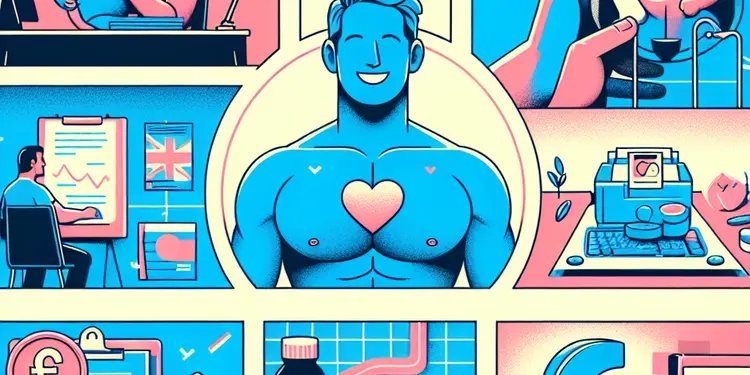
Is medication necessary for treating postnatal depression?
Relevance: 56%
-

Can fathers experience postnatal depression?
Relevance: 56%
-
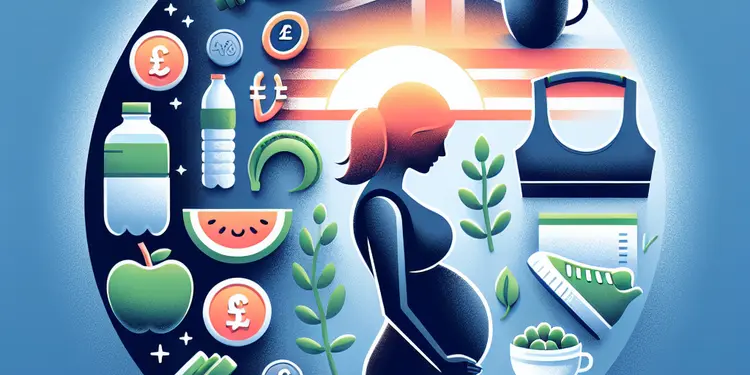
Can lifestyle changes help with postnatal depression?
Relevance: 55%
-
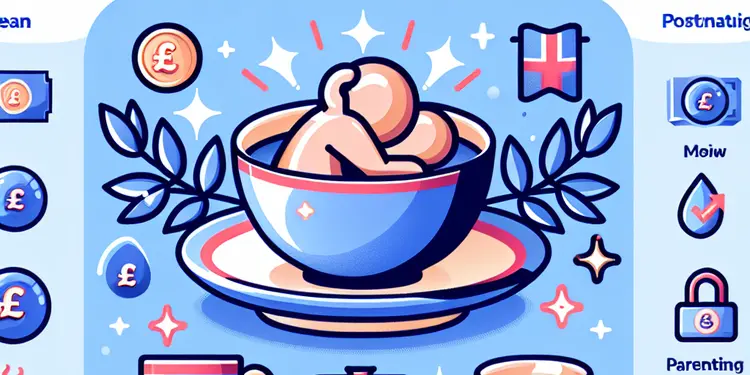
Are there support groups for postnatal depression?
Relevance: 55%
-
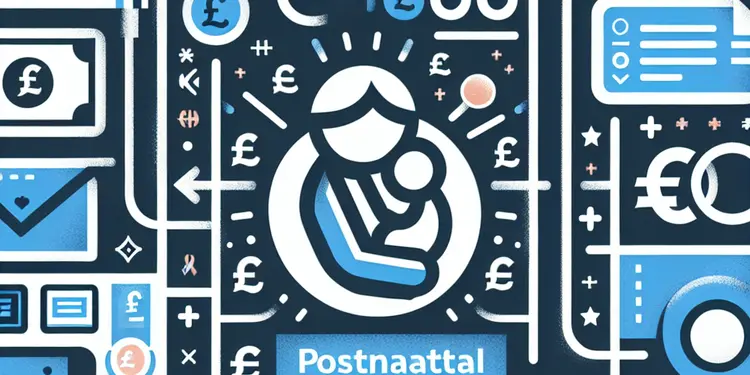
Is postnatal depression preventable?
Relevance: 55%
-

What causes postnatal depression?
Relevance: 54%
-

Should someone with postnatal depression seek professional help?
Relevance: 53%
-

Can postnatal depression affect subsequent pregnancies?
Relevance: 53%
-
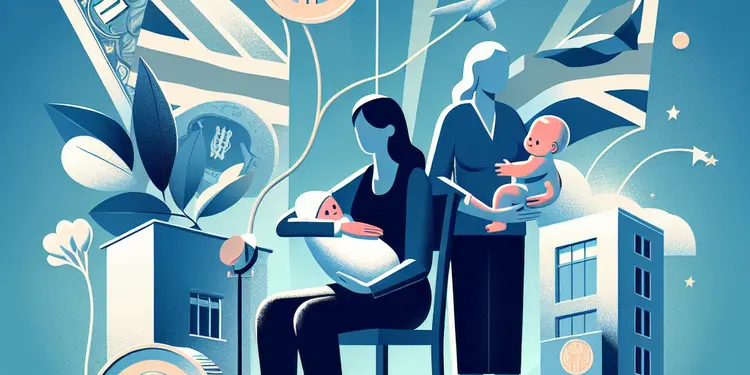
Can postnatal depression recur after treatment?
Relevance: 52%
-
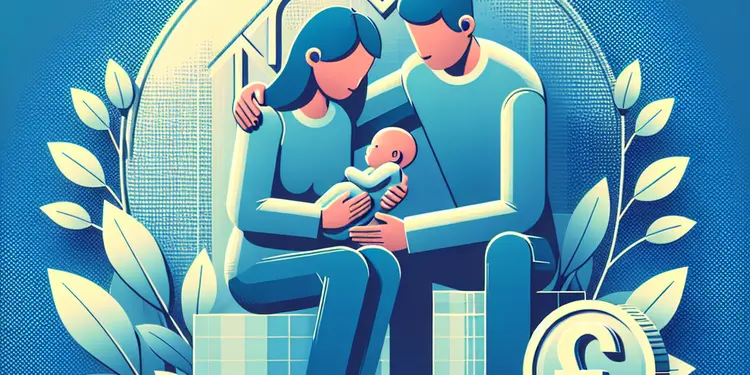
How can family members support someone with postnatal depression?
Relevance: 51%
-
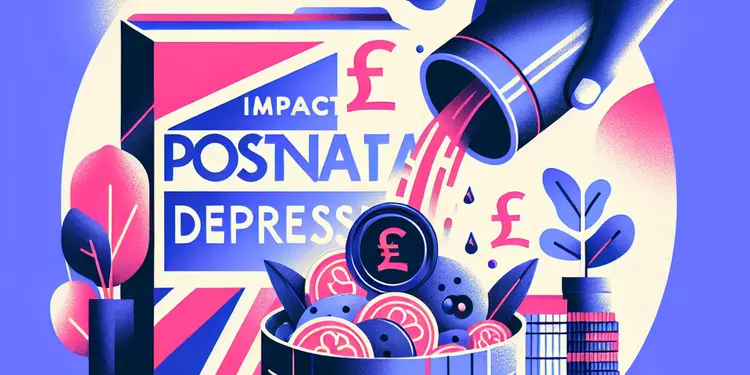
Can diet impact postnatal depression?
Relevance: 51%
-
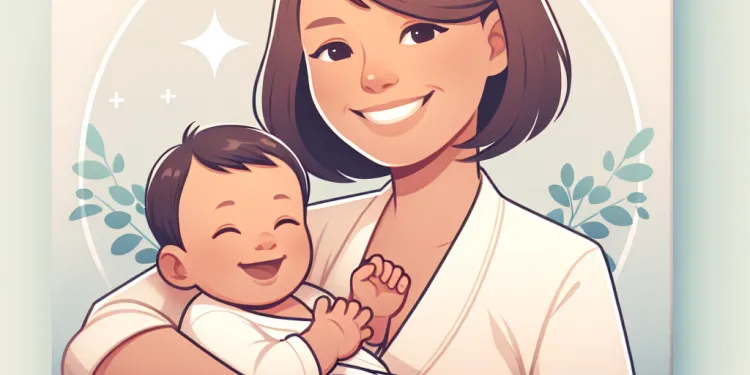
Postpartum Health: Mother and Baby
Relevance: 49%
-
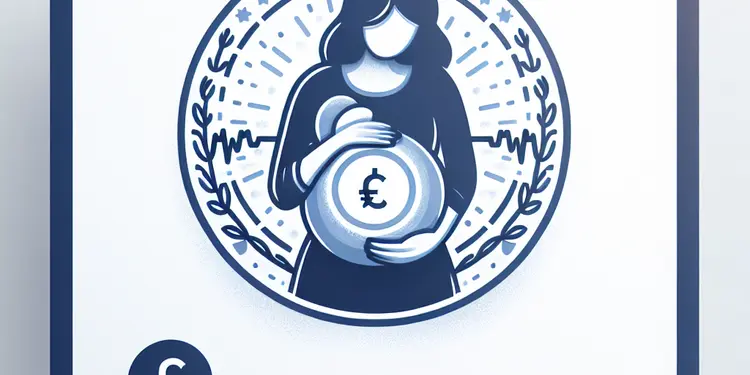
How soon after childbirth can postnatal depression occur?
Relevance: 43%
-
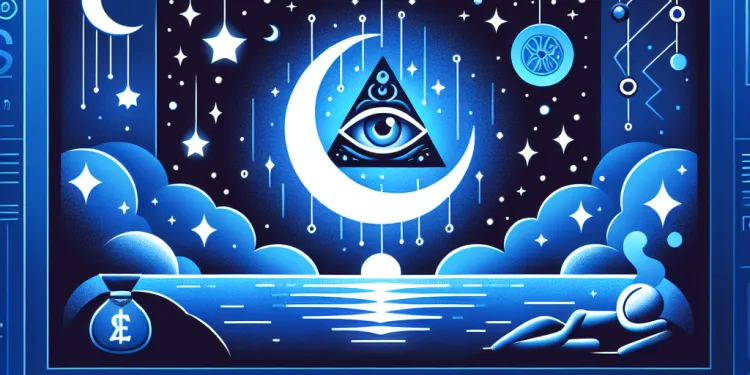
Is blue light from screens a factor in affecting sleep quality?
Relevance: 30%
-
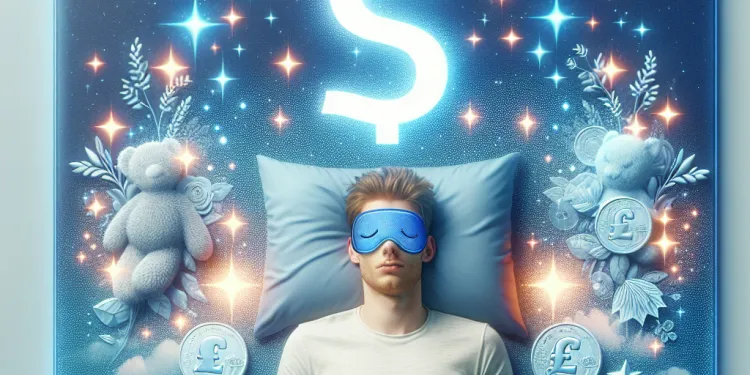
Do mitigation strategies like blue light glasses help improve sleep quality?
Relevance: 29%
-
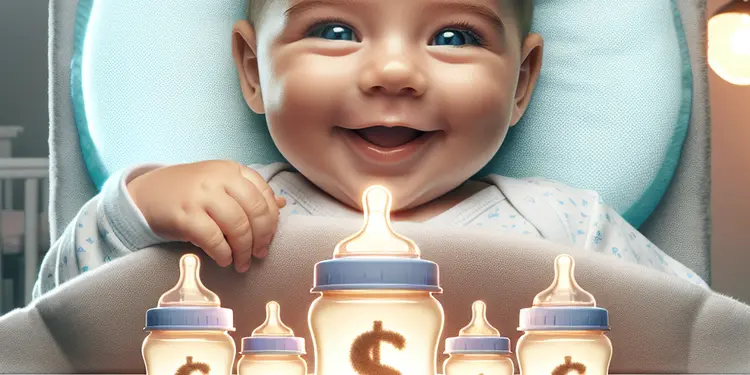
Do formula-fed babies get jaundice?
Relevance: 28%
-
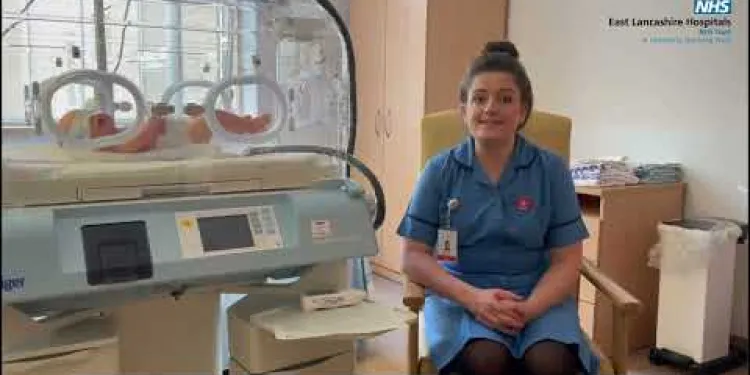
Jaundice in babies
Relevance: 27%
-
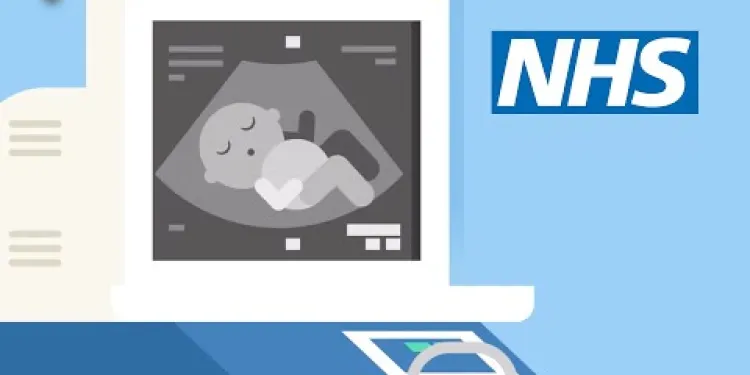
Screening tests for you and your baby | NHS
Relevance: 26%
-
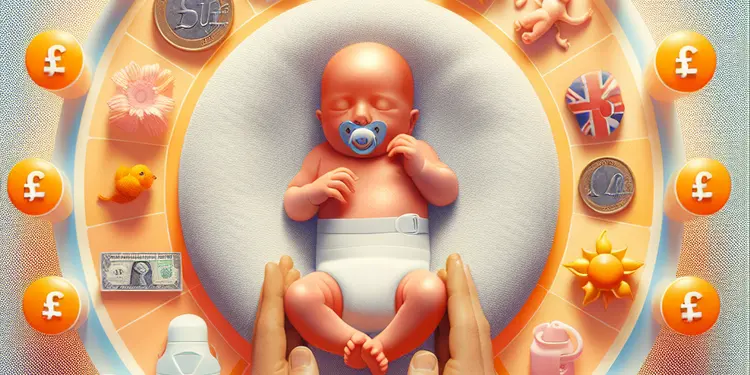
Is it safe to sunbathe a baby with jaundice?
Relevance: 25%
-
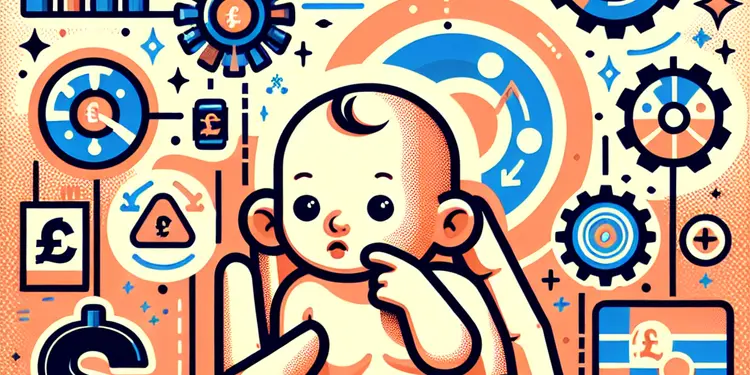
What are the symptoms of jaundice in a baby?
Relevance: 24%
-
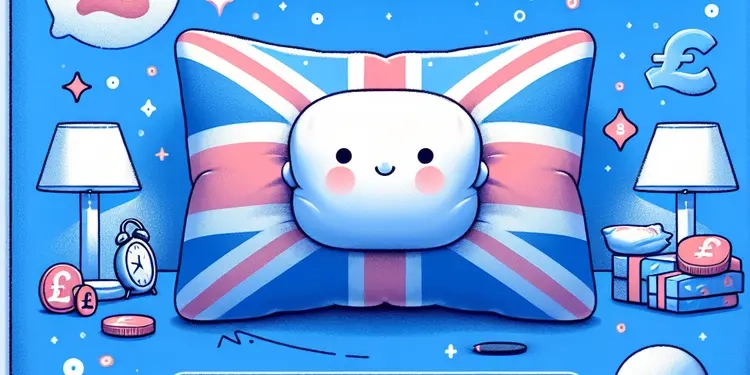
Are baby sleep pillows safe?
Relevance: 24%
-
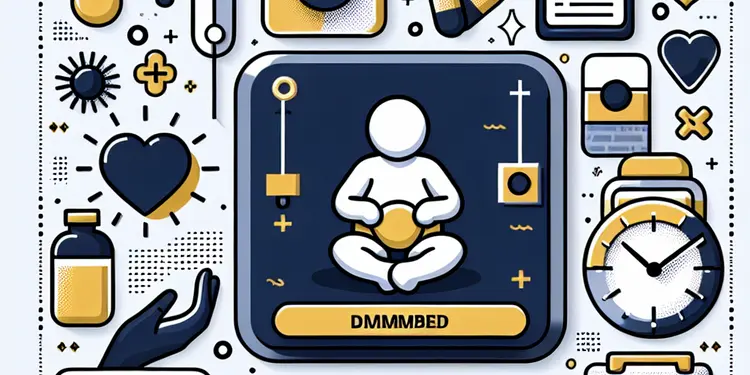
Can jaundice reoccur in babies?
Relevance: 24%
-

Why do babies get jaundice?
Relevance: 23%
-

How do I know if my baby food is safe?
Relevance: 23%
-

Is it okay to use a baby sleep positioner?
Relevance: 23%
-

Treating anxiety and depression - www.slam.nhs.uk
Relevance: 23%
-
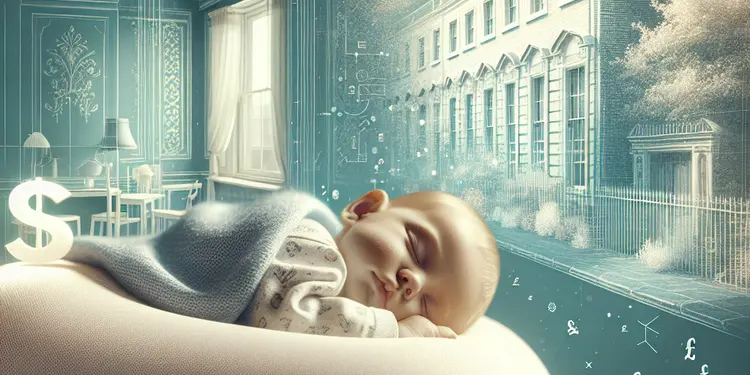
Are there any benefits to using baby sleep pillows?
Relevance: 22%
-
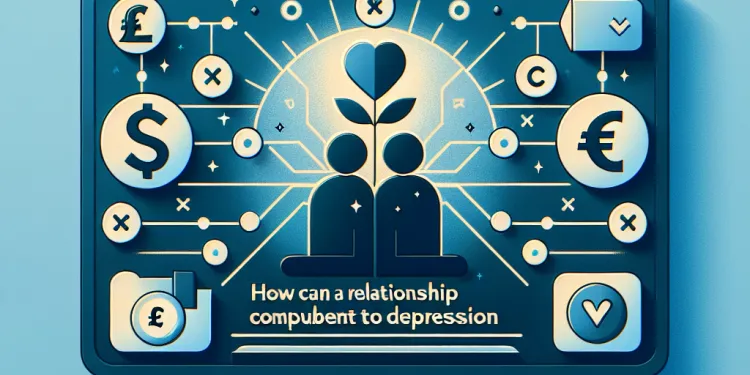
How can a relationship contribute to depression?
Relevance: 22%
-

What are the risks associated with baby sleep pillows?
Relevance: 22%
Introduction
Postnatal depression and the "baby blues" are terms often associated with new mothers. While both conditions are related to mood changes following childbirth, they differ significantly in terms of severity, duration, and impact on well-being. Understanding these differences is crucial for new parents seeking appropriate support and treatment.
What are the Baby Blues?
The "baby blues" is a common experience for many new mothers, affecting up to 80% of women shortly after giving birth. Characterised by mood swings, tearfulness, anxiety, and difficulty sleeping, the baby blues typically occur within the first few days postpartum and last for a short period of time. These mood changes are believed to be linked to the sudden hormonal shifts following childbirth, as well as the physical and emotional adjustments that accompany becoming a parent.
Importantly, the symptoms associated with the baby blues are generally mild and transient. They usually resolve on their own within two weeks without the need for medical intervention. Support from family and friends, alongside restful sleep and time to adapt, often help new mothers navigate this period without significant distress.
What is Postnatal Depression?
Postnatal depression, or PND, is a more severe and enduring condition that affects approximately 10-15% of new mothers in the UK. Unlike the baby blues, postnatal depression can develop several weeks or months after childbirth and may persist for a prolonged period if not addressed. While it shares some symptoms with the baby blues, such as persistent sadness, irritability, and fatigue, postnatal depression typically presents with more intense and disruptive symptoms.
These symptoms can include a lack of joy or interest in the baby, severe anxiety, feelings of hopelessness, and in some cases, thoughts of self-harm or harming the baby. PND is a serious mental health condition that requires professional attention, often involving a combination of therapies such as counselling, psychotherapy, or medication to facilitate recovery.
Key Differences
The primary differences between the baby blues and postnatal depression lie in the intensity, duration, and impact of symptoms. While the baby blues tend to be mild and transient, postnatal depression is more severe and interferes significantly with a mother’s ability to care for herself and her baby. Early intervention is crucial for managing PND, which often requires more structured support than the baby blues.
Seeking Help
It is important for mothers and their families to be vigilant in distinguishing between the baby blues and postnatal depression. Seeking help from healthcare providers such as GPs or health visitors can provide clarity and access to necessary resources and support. In the UK, many services are available to support mothers experiencing postnatal mental health issues, emphasising the importance of addressing these concerns early.
Conclusion
While the baby blues and postnatal depression share some similarities, they are distinct conditions requiring different levels of intervention. Awareness and understanding of these differences empower new mothers and their support networks to seek appropriate care and support, ensuring a healthier postpartum experience for both mother and child.
Introduction
Postnatal depression and "baby blues" are terms for mood changes that can happen to new mothers. These mood changes happen after having a baby. The "baby blues" and postnatal depression are not the same. They are different in terms of how serious they are, how long they last, and how they affect well-being. Knowing these differences is important for new parents. It helps them get the right support and treatment.
What are the Baby Blues?
The "baby blues" are very common for new mothers. They affect up to 80% of women soon after giving birth. The "baby blues" can make a mom feel happy one moment and sad the next. They might also cry easily, feel worried, and find it hard to sleep. These feelings usually start a few days after having the baby and only last a short time. The "baby blues" are likely caused by changes in hormones after childbirth. Becoming a parent also involves physical and emotional changes.
The "baby blues" symptoms are usually mild and do not last long. They often go away on their own within two weeks. No doctor is needed. Help from family and friends, getting good sleep, and taking time to adjust can help new moms feel better during this time.
What is Postnatal Depression?
Postnatal depression, or PND, is more serious and lasts longer than the "baby blues." It happens to about 10-15% of new mothers in the UK. PND can start weeks or even months after the baby is born. If it is not treated, it can last a long time. PND can make a mother feel very sad, grumpy, and tired, like the "baby blues." But with PND, these feelings are stronger and make life harder.
With PND, a mother might not enjoy being with her baby. She can feel very worried, hopeless, and might even think about hurting herself or the baby. PND is a serious mental health condition. It needs help from professionals. Getting better might include talking to a counsellor, therapy, or taking medication.
Key Differences
The main differences between the "baby blues" and PND are in how strong the feelings are, how long they last, and how they affect life. The "baby blues" are mild and short-lived. PND is more serious and makes it hard for the mom to take care of herself and her baby. It's important to get help early for PND. PND needs more structured support than the "baby blues."
Seeking Help
It is important for mothers and families to know the difference between the "baby blues" and PND. Getting help from doctors or health visitors can give answers and support. In the UK, many services are available to help mothers with postnatal mental health problems. It's important to get help early.
Conclusion
The "baby blues" and postnatal depression are different. They need different levels of help. Knowing these differences helps new mothers and their families get the right care. This ensures a healthier postpartum experience for both mother and baby.
Frequently Asked Questions
What is postnatal depression?
Postnatal depression is a type of mood disorder associated with childbirth, affecting both sexes, but more frequently women.
What are the 'baby blues'?
The 'baby blues' is a common experience among new mothers, characterized by mood swings, crying spells, anxiety, and difficulty sleeping, typically occurring a few days after childbirth and lasting for a couple of weeks.
How long do the 'baby blues' typically last?
The 'baby blues' usually last for about two weeks after childbirth, with symptoms gradually improving on their own.
How long can postnatal depression last?
Postnatal depression can last for several months or even longer if left untreated, significantly impacting the mother's well-being and ability to care for her baby.
What are the symptoms of postnatal depression?
Symptoms of postnatal depression include severe mood swings, fatigue, feelings of hopelessness, guilt, loss of appetite, trouble bonding with the baby, and thoughts of self-harm or harm to the baby.
What triggers the 'baby blues'?
The 'baby blues' can be triggered by hormonal changes, the stress of caring for a newborn, changes in sleep patterns, and the physical recovery from childbirth.
What are common symptoms of the 'baby blues'?
Common symptoms include crying for no reason, impatience, irritability, restlessness, anxiety, and trouble concentrating.
Is treatment necessary for the 'baby blues'?
Treatment for the 'baby blues' isn't usually necessary as the symptoms often resolve on their own, but support from family and friends can be helpful.
Is treatment necessary for postnatal depression?
Yes, treatment for postnatal depression is important and can include counseling, therapy, and possibly medication to alleviate symptoms and improve quality of life.
Can the 'baby blues' lead to postnatal depression?
While most women with the 'baby blues' do not develop postnatal depression, lingering symptoms or worsening emotional well-being may indicate a risk for postnatal depression.
How is postnatal depression diagnosed?
Postnatal depression is diagnosed through clinical assessments by healthcare professionals based on symptoms and evaluating the mental health of the new mother.
How does the severity of symptoms differ between postnatal depression and the 'baby blues'?
The 'baby blues' tend to involve mild and temporary symptoms, while postnatal depression involves more severe, intense, and long-lasting symptoms that interfere with daily functioning.
Can postnatal depression affect partners as well?
Yes, partners can also experience postnatal depression, although it is more commonly associated with mothers.
What should a new mother do if she suspects she has postnatal depression?
If a new mother suspects postnatal depression, she should seek help from a healthcare provider to discuss her symptoms and potential treatment options.
Are there risk factors that increase the likelihood of postnatal depression?
Yes, risk factors include a history of depression, lack of support, complications during childbirth, high stress levels, and financial or relationship issues.
Can lifestyle changes help manage the 'baby blues'?
Yes, lifestyle changes such as getting adequate rest, seeking support from loved ones, and maintaining a healthy diet can help manage the 'baby blues'.
Can lifestyle changes help manage postnatal depression?
While lifestyle changes can aid in the management of postnatal depression, professional treatment is often necessary for effective relief of symptoms.
How important is support from family and friends for someone with postnatal depression?
Support from family and friends is crucial for someone with postnatal depression, helping to provide emotional support, assistance with childcare, and encouragement to seek treatment.
Are there effective treatments for postnatal depression?
Yes, effective treatments include therapy (such as cognitive behavioral therapy), medication, or a combination of both, tailored to the individual's needs.
Can postnatal depression affect the child's development?
Postnatal depression can adversely affect the child's emotional and cognitive development, making early diagnosis and treatment important to prevent such outcomes.
What is postnatal depression?
Postnatal depression is when a new mother feels very sad after having a baby. It is more than just feeling a little down. It can make it hard for her to take care of herself and the baby.
If you feel this way, it is important to tell someone. You can talk to a doctor, a friend, or a family member. They can help you feel better.
You can also try to rest when your baby is sleeping, eat healthy food, and ask for help from others.
There are apps and websites that can give you support too.
After having a baby, some people feel very sad or worried. This is called postnatal depression. It can happen to anyone who has a baby, but it happens more to mums than dads.
What are the 'baby blues'?
Baby blues can make a new mum feel sad or tired.
This happens a few days after a baby is born.
It is normal and usually goes away in a bit.
Talking to a friend or doctor can help.
Lots of new mums feel sad and cry a lot after having a baby. This is called the 'baby blues.' New mums might feel worried and have trouble sleeping. This usually starts a few days after the baby is born and can last for a couple of weeks.
How long do the 'baby blues' usually last?
Having a baby can make people feel sad or worried. This is called the 'baby blues'.
Here is some easy information:
- The 'baby blues' can last for a few days.
- They usually start a few days after the baby is born.
- Most people feel better in about two weeks.
If you are feeling sad for a long time, it's good to talk to someone. You can talk to a doctor or nurse.
Using pictures and talking with friends and family can help too.
The 'baby blues' happen after a baby is born. They usually last about two weeks. You'll start to feel better on your own.
How long can feelings of sadness after having a baby last?
After having a baby, some moms feel very sad. This is called postnatal depression. It can last a short time or a long time.
If you feel sad for a long time, talk to a doctor or nurse. They can help you feel better. You can also:
- Talk to someone you trust.
- Write down your feelings in a diary.
- Ask for help with the baby from family or friends.
Remember, you are not alone, and there are people who can help you.
After having a baby, some moms feel very sad and upset. This is called postnatal depression. If they don’t get help, these feelings can last a long time and make it hard for them to look after their baby.
What are the signs of feeling very sad after having a baby?
When someone has a baby, sometimes they can feel very sad or upset. This is called postnatal depression. Here are some signs to look for:
- Feeling very sad or unhappy most of the time.
- Not wanting to do things you used to enjoy.
- Feeling tired all the time and having no energy.
- Having trouble sleeping, even when the baby sleeps.
- Feeling worried or scared a lot.
- Crying a lot, even if you don't know why.
- Having trouble bonding with the baby.
- Feeling like you're not good enough or that you can't cope.
- Thinking about hurting yourself or the baby.
If you or someone you know feels like this, it is important to talk to a doctor or a nurse. They can help. You can also try talking to a friend or family member you trust.
After having a baby, some moms can feel really sad. This is called postnatal depression. Here are some signs:
- Feeling very happy and then very sad.
- Being really tired all the time.
- Feeling like things will never get better.
- Feeling guilty for no reason.
- Not wanting to eat.
- Having a hard time loving the baby.
- Thinking about hurting yourself or the baby.
If you feel like this, talk to a doctor or a counselor. They can help.
What causes the 'baby blues'?
The 'baby blues' happen to some new moms.
They can feel sad, worried, or tired after having a baby.
This is because of big changes in the body. These changes make hormones go up and down.
Feeling 'baby blues' is normal for many moms. It usually goes away in a few days.
If you feel like this, talk to someone. Asking for help is okay.
Some things that can help:
- Rest as much as you can.
- Try to eat healthy food.
- Talk to family and friends about how you feel.
- Join a new moms' group for support.
The 'baby blues' can happen because of changes in your body. It can also be because looking after a new baby is stressful. You might be tired because you are not sleeping well. Your body also needs time to get better after having the baby.
What are common signs of feeling sad after a baby?
When some moms have a baby, they might feel a bit sad or worried. This is called the "baby blues".
Here are common signs:
- Feeling sad or crying a lot
- Getting angry easily
- Feeling very tired
- Having trouble sleeping
- Worrying a lot
- Having trouble focusing
If you or someone you know feels this way, talk to a friend, family member, or doctor.
Tools that might help include:
- Writing in a journal
- Listening to calming music
- Taking deep breaths
People might feel like crying and they do not know why. They could feel like they want things right now and get upset easily. They might feel jumpy or have lots of worries. It can also be hard for them to pay attention or focus.
Do you need help for feeling sad after having a baby?
Some new mums feel sad or worried after their baby is born. This is called 'baby blues.' It is normal and usually goes away on its own.
If you still feel sad after a few weeks, talk to your doctor. They can help you feel better.
Here are some things that might help:
- Talk to your family and friends about how you feel.
- Get plenty of rest when you can.
- Try to eat healthy food and drink enough water.
The 'baby blues' usually get better on their own, so you don't need medicine. But having help from family and friends can make you feel better.
Do you need help for feeling sad after having a baby?
If you feel sad or worried after your baby is born, it is important to talk to a doctor or nurse. They can help you feel better.
Here are some things that might help:
- Talking to someone you trust about how you feel.
- Getting plenty of rest and asking for help with your baby.
- Doing fun things you enjoy.
Remember, it is okay to ask for help. You are not alone.
Yes, it is important to get help for feeling sad after having a baby. Talking to someone can help. This is called counseling or therapy. Sometimes, medicine can help too. All of these things can make you feel better and make life happier.
Can feeling sad after having a baby lead to postnatal depression?
Sometimes, new mums feel sad or worried after having a baby. This is called the 'baby blues'.
The 'baby blues' are normal and usually go away on their own.
But sometimes, those sad feelings can get stronger and last longer. This might turn into a bigger problem called postnatal depression.
If you feel very sad or worried for more than a few weeks, it's important to tell someone. Talking to a doctor or nurse can help.
You can also ask family or friends for support. They can listen and help you feel better.
Remember, you are not alone, and there are people who can help you feel better.
Most women feel a bit sad or worried after having a baby. This is called the 'baby blues'.
But sometimes, if these feelings don't go away or get worse, it could mean the mom might have postnatal depression.
If you are feeling sad for a long time after having a baby, it is a good idea to talk to a doctor. They can help you feel better.
Using a mood diary or talking to friends can also help. Writing down how you feel or sharing your thoughts can make it easier.
How do doctors know if someone has postnatal depression?
Postnatal depression is when a new mother feels very sad or worried. Doctors and nurses can find out if someone has it by talking to them and asking how they feel.
How are postnatal depression and 'baby blues' different in how bad they feel?
Having a baby can make new mums feel sad or worried. Let's look at two ways these feelings can be different:
'Baby Blues':
- Happens a few days after having a baby
- Feels like mood swings or crying easily
- Goes away after a few days without needing help
Postnatal Depression:
- Feels much worse than 'baby blues'
- Lasts for weeks or months
- Makes it hard to feel happy or take care of the baby
- Might need a doctor or talking to someone who helps
If feeling sad doesn't go away, talking to someone can help. Families, friends, and doctors are there to support new mums.
The 'baby blues' are feelings that are not too strong and go away quickly. But postnatal depression is different. It feels much worse and lasts longer. It can make it hard to do daily things.
Can dads or partners feel sad after a baby is born too?
Yes, dads and partners can feel sad after a baby is born. This is called postnatal depression. It happens more with mums, but dads and partners can feel it too.
What can a new mum do if she thinks she has postnatal depression?
If you are a new mum and feel very sad or worried, you might have postnatal depression. Here is what you can do:
- Talk to a doctor or nurse about how you feel. They can help you.
- Share your feelings with someone you trust. This could be a friend or family member.
- Try to rest when you can. It is okay to ask for help with the baby.
- Remember that getting help is important and okay.
Supportive tools can also help:
- Find support groups where you can talk to other mums.
- Use apps that help you relax, like those for deep breathing or meditation.
If you think you may hurt yourself or the baby, get help right away. Call a doctor or emergency services.
If a new mom thinks she has postnatal depression, she should talk to a doctor or nurse. They can help her with how she is feeling and what to do next.
Can some things make postnatal depression more likely?
Yes, some things can make it more likely for someone to have depression. These things are:
- Having depression before
- Not having people to help you
- Problems when a baby is born
- Feeling very stressed
- Money problems or family problems
Using tools like lists and talking to a therapist can help.
Can changing daily habits help with feeling sad after having a baby?
Having a baby is a big change. Sometimes, new parents feel sad or upset. This is called the "baby blues." Simple changes can help:
- Rest: Try to sleep when the baby sleeps.
- Eat well: Healthy food gives you energy.
- Talk: Share feelings with family or friends.
- Go outside: Fresh air can make you feel better.
If you still feel very sad, talk to a doctor. They can help too.
Yes, making changes in what you do every day can help with feeling sad after having a baby. Get enough sleep, talk to family and friends, and eat healthy foods.
Can changing how you live help with feeling sad after having a baby?
Sometimes, new moms feel very sad after having a baby. This is called postnatal depression. Making changes to how you live can help you feel better.
Here are some ideas that might help:
- Exercise: Moving your body can make you feel happier. Try a short walk or some gentle yoga.
- Healthy Eating: Eating good food can help your mood. Try to eat fruits, vegetables, and whole grains.
- Rest: Make sure you get enough sleep. Ask someone to help with the baby so you can rest.
- Talk to Someone: Share your feelings with a friend or family member. Talking can make you feel better.
- Relax: Do things that help you relax, like listening to music or reading a book.
These changes can help you feel better. If you are still feeling very sad, it is important to talk to a doctor.
Changes in how you live can help you feel better after having a baby. But, seeing a doctor or therapist can really help to make you feel much better.
Why do family and friends need to help someone with postnatal depression?
Family and friends can make a big difference for someone with postnatal depression.
They can help by listening and giving love. It helps to know you are not alone.
Friends and family can also help with the baby, cooking, and chores. This gives the person time to rest.
If you know someone with postnatal depression, be kind and offer your help.
When someone feels sad after having a baby, it's important for their family and friends to help. They can give love and support, help take care of the baby, and encourage the person to see a doctor.
Can you help someone who feels sad after having a baby?
Yes, there are good ways to help. People can talk to someone (this is called therapy), take medicine, or do both. The plan should fit what the person needs.
Can a mother's feeling sad after having a baby affect the child's growth?
Sometimes, a mom feels very sad after having a baby. This is called postnatal depression. It can make it hard for her to take care of her baby.
If a mom feels this way, it could affect how the baby grows and learns. Babies need love and care to be healthy and happy.
It is important for moms to talk to a doctor if they feel sad. Doctors can help them feel better. This can help the baby too.
Here are some things that can help:
- Talking to family and friends.
- Going for a walk with the baby.
- Asking for help from a doctor or nurse.
After a baby is born, some moms can feel very sad. This is called postnatal depression.
It's important to find and help these moms early so their babies can grow up happy and smart.
If you know someone who feels this way, getting help from a doctor or a friendly group can be really good.
Useful Links
This website offers general information and is not a substitute for professional advice.
Always seek guidance from qualified professionals.
If you have any medical concerns or need urgent help, contact a healthcare professional or emergency services immediately.
Some of this content was generated with AI assistance. We’ve done our best to keep it accurate, helpful, and human-friendly.
- Ergsy carfully checks the information in the videos we provide here.
- Videos shown by Youtube after a video has completed, have NOT been reviewed by ERGSY.
- To view, click the arrow in centre of video.
- Most of the videos you find here will have subtitles and/or closed captions available.
- You may need to turn these on, and choose your preferred language.
- Go to the video you'd like to watch.
- If closed captions (CC) are available, settings will be visible on the bottom right of the video player.
- To turn on Captions, click settings .
- To turn off Captions, click settings again.
More Items From Ergsy search
-

How is postnatal depression different from the 'baby blues'?
Relevance: 100%
-

Postnatal Depression
Relevance: 77%
-

What is postnatal depression?
Relevance: 74%
-

How does postnatal depression affect bonding with the baby?
Relevance: 72%
-

What are the symptoms of postnatal depression?
Relevance: 71%
-

Is postnatal depression a long-term condition?
Relevance: 70%
-

Postnatal Depression - Leanne's Story
Relevance: 68%
-

Are there treatments available for postnatal depression?
Relevance: 64%
-

How is postnatal depression diagnosed?
Relevance: 64%
-

What should I do if I suspect I have postnatal depression?
Relevance: 63%
-

How do I know if I have postnatal depression? | NHS
Relevance: 59%
-

Is medication necessary for treating postnatal depression?
Relevance: 56%
-

Can fathers experience postnatal depression?
Relevance: 56%
-

Can lifestyle changes help with postnatal depression?
Relevance: 55%
-

Are there support groups for postnatal depression?
Relevance: 55%
-

Is postnatal depression preventable?
Relevance: 55%
-

What causes postnatal depression?
Relevance: 54%
-

Should someone with postnatal depression seek professional help?
Relevance: 53%
-

Can postnatal depression affect subsequent pregnancies?
Relevance: 53%
-

Can postnatal depression recur after treatment?
Relevance: 52%
-

How can family members support someone with postnatal depression?
Relevance: 51%
-

Can diet impact postnatal depression?
Relevance: 51%
-

Postpartum Health: Mother and Baby
Relevance: 49%
-

How soon after childbirth can postnatal depression occur?
Relevance: 43%
-

Is blue light from screens a factor in affecting sleep quality?
Relevance: 30%
-

Do mitigation strategies like blue light glasses help improve sleep quality?
Relevance: 29%
-

Do formula-fed babies get jaundice?
Relevance: 28%
-

Jaundice in babies
Relevance: 27%
-

Screening tests for you and your baby | NHS
Relevance: 26%
-

Is it safe to sunbathe a baby with jaundice?
Relevance: 25%
-

What are the symptoms of jaundice in a baby?
Relevance: 24%
-

Are baby sleep pillows safe?
Relevance: 24%
-

Can jaundice reoccur in babies?
Relevance: 24%
-

Why do babies get jaundice?
Relevance: 23%
-

How do I know if my baby food is safe?
Relevance: 23%
-

Is it okay to use a baby sleep positioner?
Relevance: 23%
-

Treating anxiety and depression - www.slam.nhs.uk
Relevance: 23%
-

Are there any benefits to using baby sleep pillows?
Relevance: 22%
-

How can a relationship contribute to depression?
Relevance: 22%
-

What are the risks associated with baby sleep pillows?
Relevance: 22%


